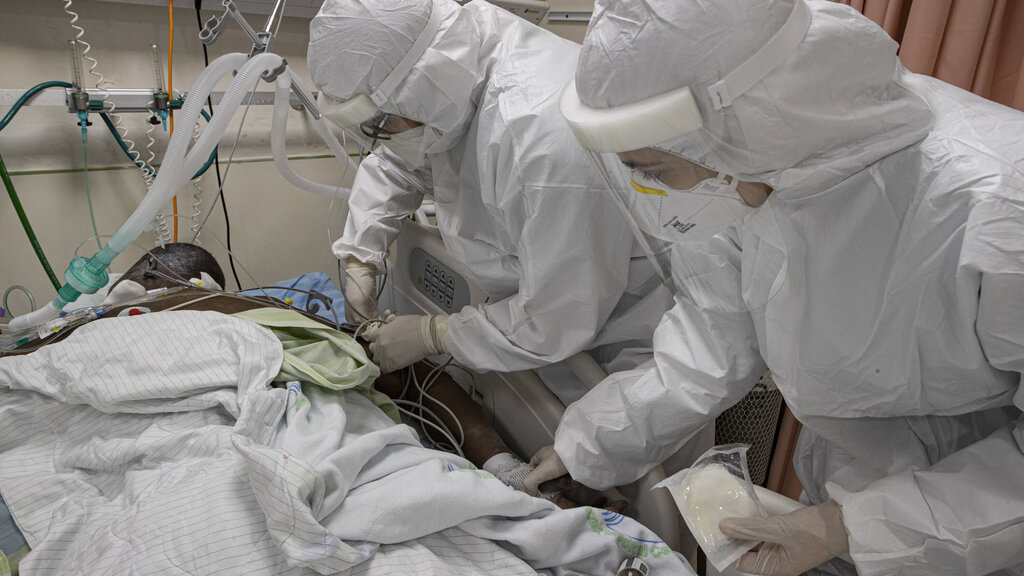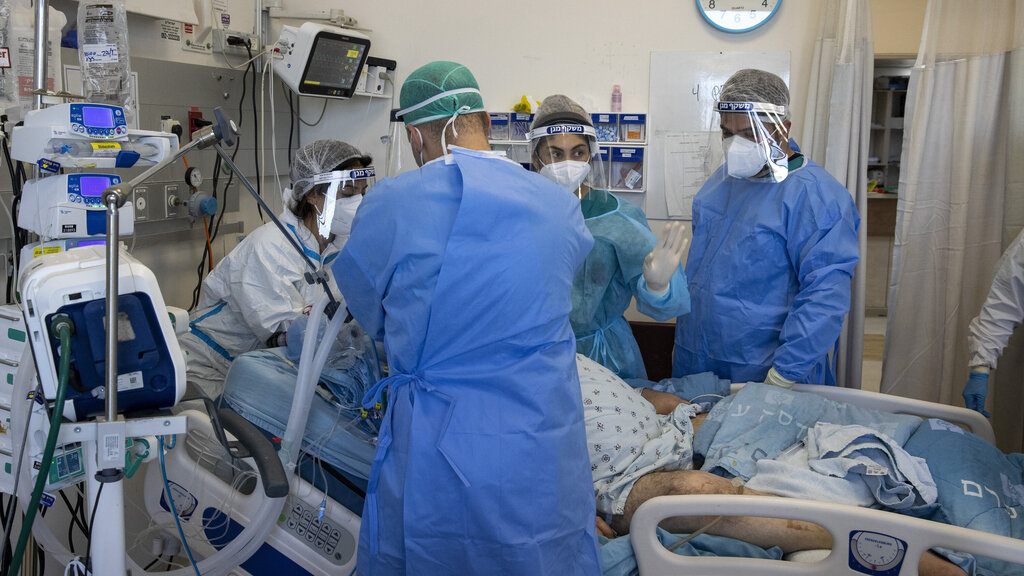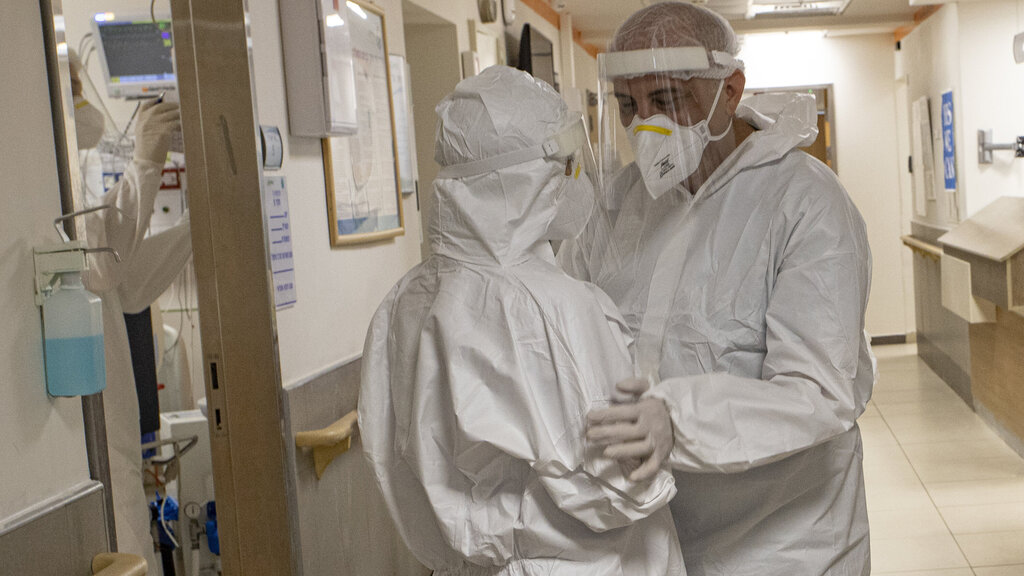Getting your Trinity Audio player ready...
As coronavirus cases continue to surge across Israel, the country's hospitals say their intensive care units are working overtime to deal with the flow of new COVID patients, most of whom apparently were not vaccinated.
Despite conducting one of the world's fastest vaccination campaigns, Israel has been struggling to contain the highly contagious delta variant. Over the weekend, health officials reported the tally of severely ill coronavirus patients has reached over 500 for the first time in months.
3 View gallery


The COVID ward at the HaEmek Medical Center in Afula on Saturday
(Photo: Gil Nechushtan)
Hospitals in the center of the countries said they have begun transferring serious patients to be treated at Jerusalem's medical centers, where more beds were available.
Hadassah Medical Center in Jerusalem has even announced it would open an additional COVID ward on Sunday to meet the demand.
According to Kan Public Radio, some elective medical procedures will be canceled to free hospital teams and bolster COVID ward staffing in many hospitals.
Dr. Noa Eliakim-Raz at the Rabin Medical Center in Petach Tikva said only one patient out of those hospitalized in the intensive care unit, was vaccinated.
3 View gallery


A COVID ward at the Hadassah Medical Center in Jerusalem on Saturday
(Photo: Amit Shabi)
"The safety of vaccines has been proven, after a billion people around the world have already been vaccinated," she said. "The unvaccinated patients are young and very ill. It is heartbreaking and at the same time baffling," she said.
"By the time they come to us, there is no point in asking why they failed to get their shots. I am sure, had they understood the suffering of patients and their families, and the terror felt by them when their health deteriorates, they would have acted differently," Eliakim said.
Professor Zvi Fridlander from the Hadassah Medical Center, said the unvaccinated population was responsible for the fourth wave of coronavirus the country is now experiencing.
"My anger is directed at the million or so who did not get their vaccines," he said, adding that he often hears from unvaccinated patients about how sorry they were for refusing the jabs.
3 View gallery


Medical staff at the HaEmek Medical Center in Afula on Saturday
(Photo: Gil Nechushtan)
Both physicians said the medical teams were exhausted, overwhelmed and frightened after fighting the virus on the front lines since it first erupted over a year ago.
Dr. Eliakin, however, insists the teams were dedicated and committed to the fight. "People are working tirelessly and are fully committed. We have pregnant doctors and nurses and immunocompromised staff, all treating COVID patients," she said.
The doctor added, however, the virus is here to stay.
"There will always be a battle between new mutations and the population's immunity," she said. "The more people have immunity, the better off we will be. We will need boosters periodically and with new variants, morbidity will rise – just like other diseases evolve - but in time we will learn more about COVID and how best to live with it," she said.
First published: 08:34, 08.15.21

